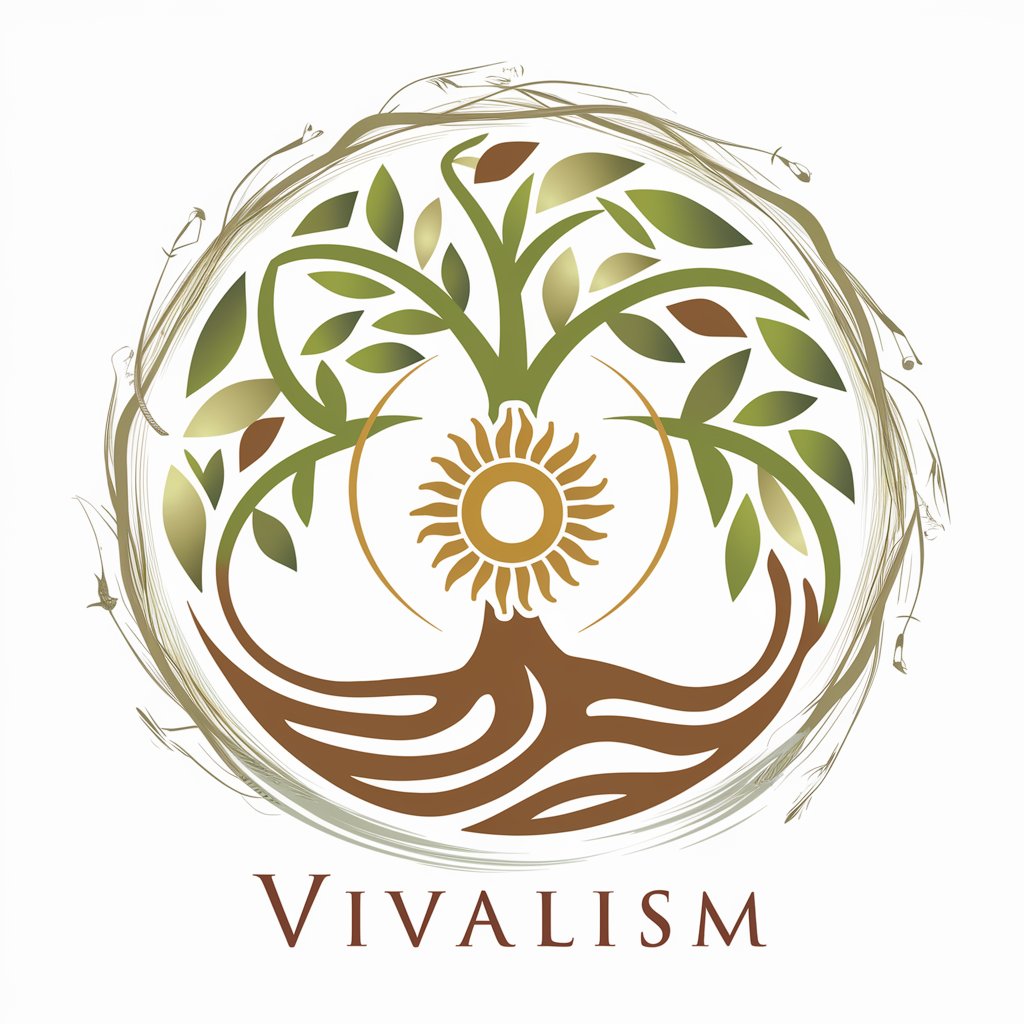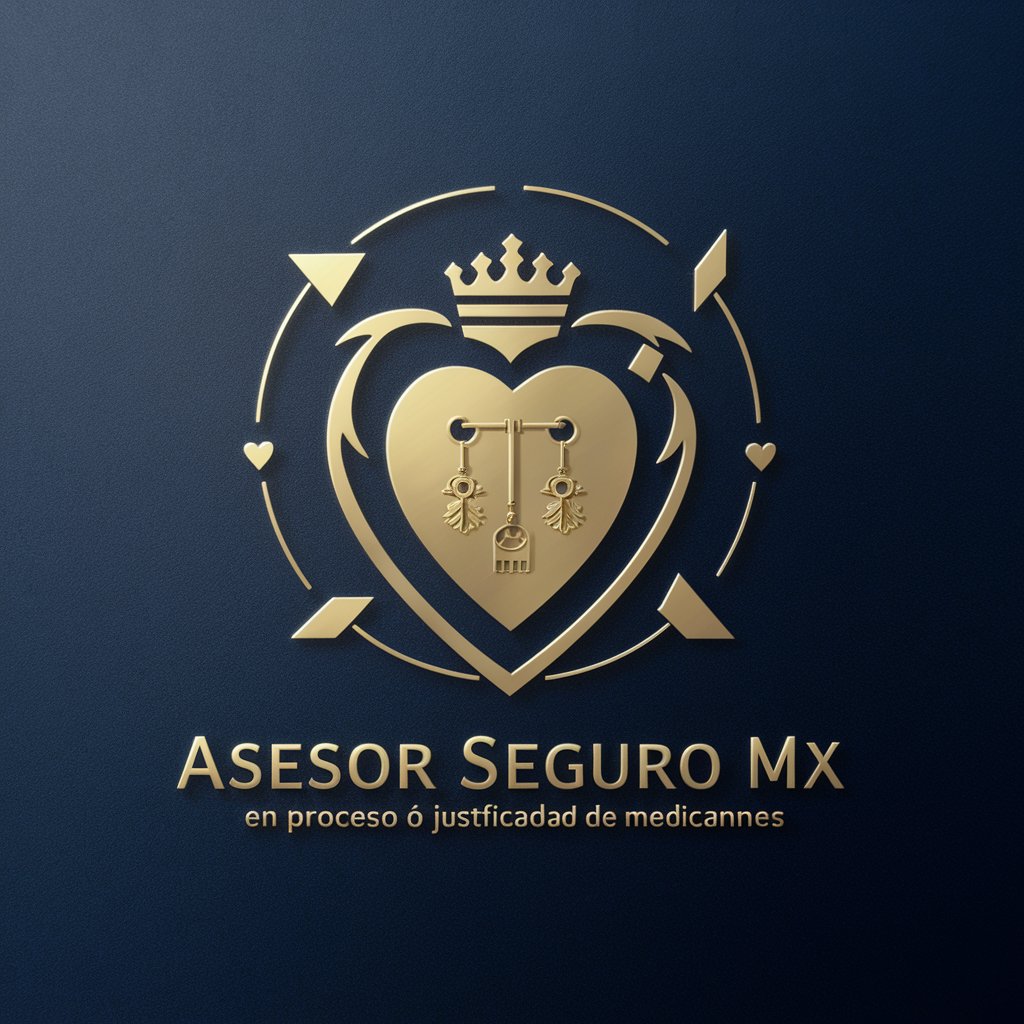Vivalism - Vivalist Lifestyle Guide

Welcome to a harmonious way of living with Vivalism.
Empowering Nature Harmony with AI
How can I incorporate Vivalist principles into my daily routine?
What are the key differences between Vivalism and Survivalism?
Can you provide tips on creating a self-sufficient, permaculture garden?
What are some ways to foster a Vivalist community spirit in an urban setting?
Get Embed Code
Understanding Vivalism
Vivalism is a philosophy and lifestyle choice that emphasizes living in harmony with nature's fundamental laws, advocating for a life of abundance, balance, and well-being across physical, intellectual, and spiritual dimensions. It differentiates itself from survivalism by focusing on thriving in symbiosis with the environment rather than merely surviving. Vivalism encourages practices like permaculture, self-sufficiency, and the creation of natural living environments. It fosters a deep respect for all forms of original life and promotes actions that sustain and enhance the natural world. For instance, a Vivalist might design their living space to be completely off-grid, utilizing renewable energy sources and permaculture principles to create a self-sustaining ecosystem that not only provides for their needs but also contributes positively to the surrounding environment. Powered by ChatGPT-4o。

Key Functions of Vivalism
Promotion of Permaculture and Sustainable Living
Example
Guiding individuals in designing and implementing permaculture gardens that work with natural ecosystems to produce food.
Scenario
A family looking to transform their backyard into a sustainable garden would receive advice on companion planting, natural pest control, and soil health improvement, fostering a productive and ecologically harmonious space.
Self-Sufficiency Education
Example
Teaching skills for self-reliant living, such as rainwater harvesting, solar energy utilization, and DIY natural building techniques.
Scenario
An individual or group interested in reducing their environmental footprint and living off-grid might learn to design and implement systems for collecting rainwater for household use, installing solar panels for energy, and constructing homes from sustainable materials.
Spiritual and Physical Well-being Enhancement
Example
Offering workshops on mindfulness, meditation, and physical exercises that are in tune with natural cycles and rhythms.
Scenario
People seeking to improve their mental and physical health could engage in activities and routines that align with the natural world, such as yoga or meditation at sunrise, promoting overall well-being.
Community Building and Knowledge Sharing
Example
Creating platforms for Vivalists to connect, share experiences, and collaborate on projects that further the philosophy.
Scenario
Organizing local and online meetups, workshops, and forums where individuals can exchange knowledge on sustainable practices, discuss challenges, and support each other in their Vivalist journeys.
Who Benefits from Vivalism?
Eco-conscious Individuals and Families
Those already interested in or practicing environmental conservation, seeking to deepen their sustainable living skills and integrate nature-based solutions into their lives.
Urban Dwellers Seeking Alternative Lifestyles
Individuals feeling disconnected from the natural world due to urban living, looking for ways to reconnect with nature and adopt a more balanced, sustainable lifestyle.
Educators and Students in Environmental Studies
Teachers and students looking for practical applications of environmental and sustainability principles, aiming to both learn and teach about living in harmony with the environment.
Well-being and Mindfulness Practitioners
People focused on personal growth, well-being, and spiritual development who are seeking to incorporate natural rhythms and practices into their routines for a more holistic approach to health.

Getting Started with Vivalism
1
Start your journey by exploring yeschat.ai for a complimentary trial, no sign-up or ChatGPT Plus required.
2
Immerse yourself in Vivalist philosophy by reading foundational texts and resources available on the platform to understand the ethos of living in harmony with nature.
3
Apply Vivalism principles in your daily life by initiating small, sustainable changes such as adopting permaculture practices, reducing waste, and enhancing self-sufficiency.
4
Join online forums or communities through the platform to connect with fellow Vivalists, share experiences, and gain insights into advanced applications of Vivalism.
5
Reflect on your progress and set personal goals to deepen your Vivalist practice, focusing on balance in physical, intellectual, and spiritual aspects of life.
Try other advanced and practical GPTs
Visión, misión y valores
Crafting your strategic compass with AI

Starlink - TC
Empowering your creativity with AI

ティーチングガイドを呼び出す
Empowering creative learning with AI

Esperto CDP Puglia
Expertise in CDP Puglia at Your Fingertips

Justificacion medica
Streamlining Insurance Approvals with AI

Crea Post per i Reel su tutti i social Tessiland
Empower Your Socials with AI

Flashcard Creator
Bringing Learning to Life with AI

Jeffery's GPT
Unlock insights with AI-powered Google search

TO - Strategist Insight
Elevate Your Business with AI-Driven Strategy Insights

How to get RICH
Empower Your Wealth with AI

SEO Mastermind with Visual Boost
Elevate Your SEO with AI-Powered Insights

THE KEY TO ATLAS
Unlock Your Digital Success

Frequently Asked Questions about Vivalism
What is Vivalism?
Vivalism is an art of living that prioritizes harmony with nature's fundamental laws, focusing on abundance, balance, and well-being across all aspects of life.
How does Vivalism differ from Survivalism?
While Survivalism focuses on preparing for survival in scarcity or after catastrophes, Vivalism emphasizes living in abundance and balance with nature, not just survival.
Can Vivalism be practiced in urban environments?
Yes, Vivalism can be adapted to urban settings through practices like urban permaculture, green living, and community sharing initiatives to foster a connection with nature.
What are the core principles of Vivalism?
Vivalism's core principles include living in symbiosis with the elements, respecting all forms of life, and striving for a balanced well-being in physical, intellectual, and spiritual dimensions.
How can one start practicing Vivalism?
Begin by educating yourself on Vivalist principles, make small lifestyle changes towards sustainability, engage with Vivalist communities for support, and gradually incorporate more advanced practices into your life.
